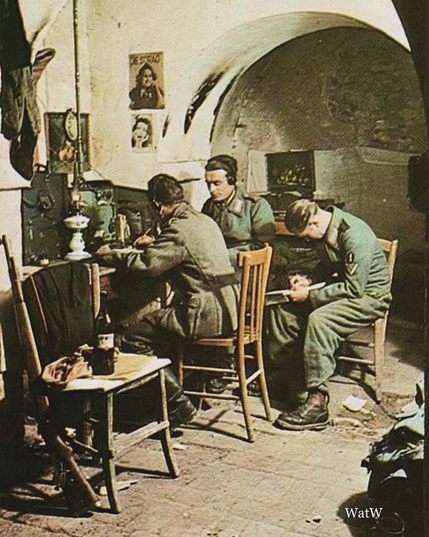Understanding the Metric System in Amateur Radio: A Comprehensive Guide for Success
1,426 words, 8 minutes read time.
The metric system is one of the most universally used systems of measurement, and it’s crucial for success in amateur radio. From frequencies to power ratings, resistance, and voltage, the metric system provides a standardized framework for understanding and communicating technical data. For those preparing for the Amateur Radio Technician exam, mastering the metric system is essential to navigating the test with confidence and accuracy. This guide will explain the importance of the metric system in amateur radio, its relevance to the exam, and offer tips and tricks to help you succeed.
The Metric System and Amateur Radio: Why It Matters
In the world of amateur radio, the metric system plays a fundamental role in creating a consistent, universal language for communication. The metric system, or International System of Units (SI), is used worldwide, except in the United States, Myanmar, and Liberia. This system simplifies the process of sharing technical information across borders, ensuring that radio operators in different countries can understand one another’s measurements without confusion.
Whether you’re measuring frequency, power, voltage, or resistance, the metric system provides clear, standardized units for all these parameters. It helps create a foundation for understanding complex radio concepts, such as signal propagation, radio wave behavior, and power calculations. As the most widely used system for scientific and technical applications, it’s indispensable for anyone interested in becoming an amateur radio operator.
For example, frequency in amateur radio is measured in hertz (Hz), and its multiples are expressed in kilohertz (kHz) or megahertz (MHz). Similarly, power is measured in watts (W), with milliwatts (mW) and kilowatts (kW) as commonly used multiples. Resistance is measured in ohms (Ω), with kiloohms (kΩ) and milliohms (mΩ) as commonly used units for different levels of resistance. Voltage is measured in volts (V), with common multiples being millivolts (mV) and kilovolts (kV).
The Role of the Metric System in the Amateur Radio Technician Exam
The Technician Class license exam for amateur radio requires knowledge of the metric system because it is directly related to various technical questions about frequency, power, voltage, resistance, and more. The exam is structured with 35 multiple-choice questions, covering a wide range of topics including basic electronics, radio wave propagation, safety, and regulations. Understanding the metric system is crucial for answering questions related to these concepts.
One of the challenges that exam-takers face is converting between different units within the metric system. For instance, you may be asked to convert a frequency value from kilohertz (kHz) to megahertz (MHz), or convert milliwatts (mW) into watts (W). Having a solid grasp of the metric system and how to make these conversions is key to answering these types of questions correctly.
In the context of amateur radio, conversions often come up when you’re working with different power levels or adjusting to varying frequency bands. The ability to convert seamlessly between units can help you save time and avoid making mistakes during the exam. That’s why it’s essential to know the common prefixes used in the metric system, like milli (m), kilo (k), and mega (M), and their corresponding values.
Understanding Metric Units and Prefixes
To fully comprehend the metric system in amateur radio, you must first understand the most common units and their prefixes. These prefixes are used to represent different scales of measurement. Here are some of the most important prefixes and their values:
- Milli (m) = 0.001 or 10^-3
- Centi (c) = 0.01 or 10^-2
- Deci (d) = 0.1 or 10^-1
- Kilo (k) = 1,000 or 10^3
- Mega (M) = 1,000,000 or 10^6
These prefixes are applied to various units such as watts, volts, ohms, and hertz, and they help simplify calculations. For instance, you might encounter a situation where you need to convert a signal’s power from milliwatts (mW) to watts (W). To convert from milliwatts to watts, you would divide by 1,000. So, if you have 500 mW, you would divide by 1,000 to get 0.5 W.
Additionally, when working with frequencies, you might need to convert between kilohertz and megahertz. If a radio signal’s frequency is given in kilohertz, but the question asks you to provide the value in megahertz, you can divide the frequency by 1,000. For example, 2,500 kHz is equivalent to 2.5 MHz.
Metric System Practice for the Technician Exam
To perform well on the Technician Class exam, it’s vital to practice working with the metric system. Start by memorizing the common prefixes and their corresponding values. After you’ve committed these to memory, practice applying them to different types of radio-related problems.
One of the most effective ways to practice is by using sample questions from previous exams. These questions often cover the key concepts you need to know, such as frequency conversions, power calculations, and understanding units of voltage and resistance. By solving practice problems, you’ll develop a deeper understanding of the metric system and become more comfortable making conversions under pressure.
You can find numerous online resources that provide practice questions and detailed solutions, such as websites and apps designed specifically for amateur radio exam preparation. These resources will help you hone your skills and identify areas where you need more practice.
Test Tips and Tricks for Metric System Success
Here are a few test-taking strategies to help you succeed in the Technician Class exam when dealing with metric system questions:
- Memorize Key Metric Prefixes: The metric system relies heavily on prefixes like milli, kilo, and mega. Make sure you commit these prefixes to memory, as they will appear frequently in exam questions. Understanding these conversions will be essential for quick and accurate answers.
- Practice Unit Conversions: While the concept may seem simple, unit conversions can trip up even experienced radio operators. Practice converting units between milliwatts and watts, kilohertz and megahertz, and so on. Familiarity with these conversions will save you valuable time during the exam.
- Use Mnemonics: Mnemonics are a great way to remember the prefixes and their values. For instance, you could use a simple phrase like “King Henry Died By Drinking Chocolate Milk” to remember the order of prefixes (kilo, hecto, deka, base unit, deci, centi, milli). Finding your own creative mnemonic can make learning more enjoyable.
- Don’t Overthink It: During the exam, it’s easy to second-guess yourself when it comes to conversions. If you know the formula and the units, don’t waste time doubting your answer. Take a deep breath, stick with what you know, and move forward.
- Time Management: The Technician exam has a time limit, so don’t get bogged down on any one question. If you’re stuck on a question about the metric system, skip it and come back to it later. Answer the questions you know first, then focus on the more challenging ones.
Common Mistakes to Avoid
When working with the metric system in amateur radio, there are a few common pitfalls to be aware of:
- Confusing Similar Prefixes: It’s easy to mix up similar prefixes like milli (m) and mega (M). Remember that milli is 0.001, and mega is 1,000,000. A mistake in identifying these prefixes can lead to huge errors in calculations.
- Misplacing Decimal Points: Decimal point errors are common when converting between units. Be careful with your decimal places, as a single misplaced decimal can cause a significant error in your answer.
- Ignoring Units of Measurement: Always double-check that your units match when performing calculations. Mixing units, such as milliwatts and watts, can lead to confusion and incorrect results.
Conclusion
The metric system is a crucial aspect of amateur radio, and understanding it is essential for success in the Technician Class exam. By learning the common prefixes, practicing unit conversions, and using effective test-taking strategies, you’ll be well-prepared for the exam and confident in your ability to apply these concepts in real-world radio operations.
For anyone aiming to pass the Technician Class exam, dedicating time to mastering the metric system will make a significant difference in your performance. As with any subject, practice is key, and by utilizing available resources and committing the important concepts to memory, you’ll be ready to tackle the exam with ease.
With the right preparation and understanding of the metric system, you’ll not only pass the exam but also gain valuable knowledge that will serve you well as you embark on your journey as an amateur radio operator.
D. Bryan King
Sources
Disclaimer:
The views and opinions expressed in this post are solely those of the author. The information provided is based on personal research, experience, and understanding of the subject matter at the time of writing. Readers should consult relevant experts or authorities for specific guidance related to their unique situations.
Related Posts
Rate this:
#AmateurRadio #amateurRadioKnowledge #amateurRadioStudy #conversionTips #examPrep #examSuccess #examSuccessTips #frequencyConversions #hamOperator #hamRadio #hamRadioLicense #hamRadioPreparation #hamRadioTips #hertz #kilo #kilohertz #mega #megahertz #metricConversions #metricPrefixes #metricSystem #metricUnits #milliwatts #ohms #powerCalculations #powerRatings #radioCommunication #radioEquipment #radioExamGuide #radioExamQuestions #radioExamTips #radioFrequency #radioHobby #radioKnowledge #RadioLicensing #radioMeasurementUnits #radioOperator #radioSafety #radioTechnician #radioTests #radioTraining #radioWaves #resistance #SIUnits #technicalKnowledge #TechnicianClassExam #TechnicianExamPractice #testStudyGuide #testTakingStrategies #voltage #volts #watts









